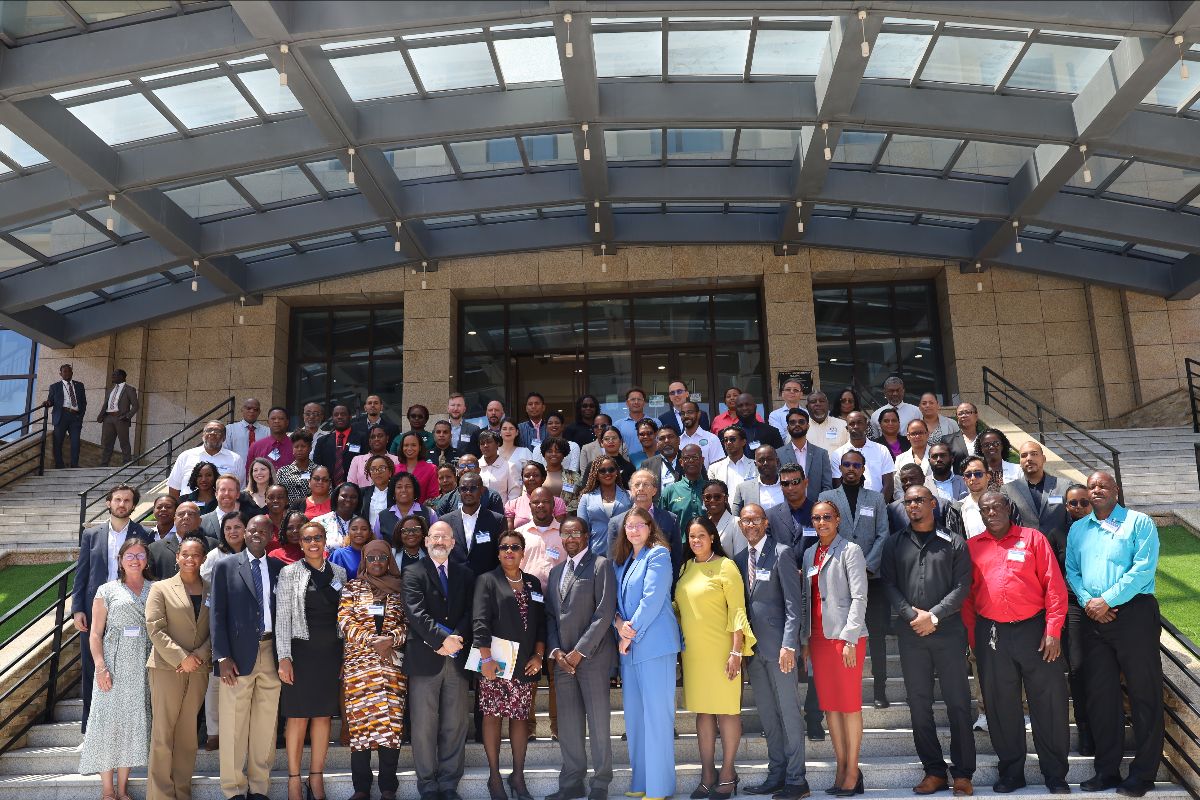Scientists at the National Oceanic and Atmospheric Administration (NOAA) are predicting that heat records will be shattered in 2024, with a 99 percent chance that 2024 will rank among the planet’s five warmest years on record.
Given these dire predictions, a three-day workshop aimed at assessing the current capacity and challenges in advancing Heat-Health Early Warning Systems (HHEWS) got underway today (April 16, 2024) at the Ministry of Foreign Affairs and Foreign Trade in Downtown Kingston.
The workshop, which is spearheaded by the Ministry of Economic Growth and Job Creation (MEGJC), in partnership with the Ministry of Health and Wellness (MOHW) and NOAA, brings together climate and health stakeholders in the Caribbean, to develop heatwave forecasting tools for the Caribbean and prepare heat hazard outlooks.
Addressing the workshop, Chief Scientist at NOAA, Dr. Sarah Kapnick, said the heat records are being shattered at a very high rate.
“Earth’s average land-ocean temperatures have gone up tremendously over the years. 2023 was two point twelve (2.12) degrees Fahrenheit above the 20th century average. This beats the next warmest year, set in 2016 during an El Nino by a record margin of point-two-seven, (.27) degrees Fahrenheit”, she explained.
Dr. Kapnick, said the statistics make it clear that global warming, along with excessive heat will continue to impact communities and that governments must work together to help communities prepare for this extreme hazard.
“We are here to identify extreme heat hazard events to understand how they impact human health and what we can do to prevent such impacts. In the United States, excessive heat is currently the leading cause of weather-related deaths and that is expected to go up. The elderly and the young are especially vulnerable. With climate change, the heat events are expected to become more frequent, more extreme, and longer in duration”, she noted.
Meanwhile, Director of the Meteorological Services Division, Evan Thompson explained that the workshop was launched under the (United States) President’s Emergency Plan for Adaptation and Resilience (PREPARE) programme.
“This is an initiative of the President of the United States, President Biden, he indicated that he would provide grant funding to assist countries that needed to become more resilient to climate change in various ways, and it’s a joined-up Government thing. So there are a number of agencies in the United States Government that have come together to be part of that initiative and then they support the work of countries like ours in the Caribbean region…so this is the Caribbean launch that we’re having today”, he explained.
Following the workshop, NOAA will train the meteorologists in the Caribbean in the use of heat wave forecasting tools, interpretation of the forecasts, and the use of Geographic Information Systems (GIS) for mapping the heat hazard outlooks. NOAA will also work with two pilot countries in the Caribbean to integrate the heat wave forecasts with health vulnerability data, to issue warnings and alerts when necessary.
The workshop is being attended by professionals from the National Meteorological and Hydrological Services (NMHSs), the Caribbean Institute of Meteorology and Hydrology (CIMH), the Caribbean Public Health Agency (CARPHA), Health Districts, the Pan American Health Organization (PAHO), the World Meteorological Organization RA-IV Regional Office, Non-Governmental Organizations such as Red Cross, local authorities, and community organizations.
–30–


